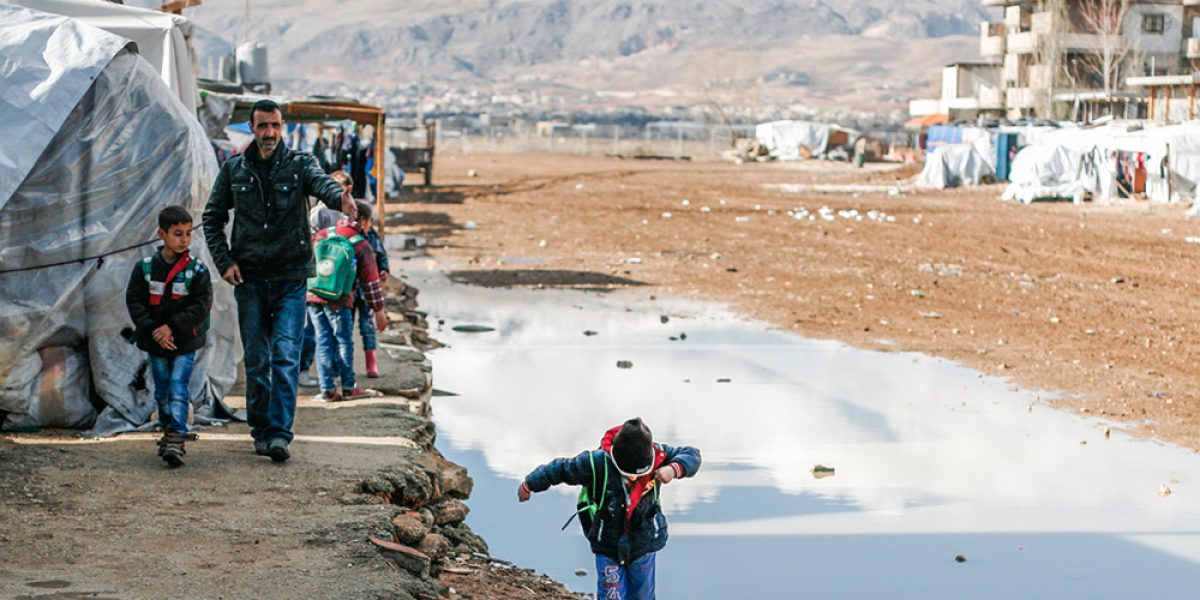Working Paper 6: death of asylum by a thousand cuts?
30 January 2017

Brussels, 30 January 2017 – The reform proposals for the Common European Asylum System (CEAS) collectively amount to the death of asylum in Europe by a thousand cuts our working paper, published today finds.
“We are very concerned that if all these proposals go through, they will hit the most vulnerable the hardest. The support offered to children travelling alone, pregnant women and separated families would be radically reduced rather than increased,” said JRS Europe regional director, Jose Ignacio Garcia, SJ.
“We are calling on the EU institutions to re-think the impact that these proposals will have and to strive to improve solidarity with refugees in Europe,” he concludes.
JRS Europe opens the paper with detailed recommendations, grouped into four main areas:
1. Stop the externalisation of protection responsibilities
2. Commit to greater solidarity with refugees and between Member States
3. Prioritise social inclusion and integration of forced migrants in European societies
4. Abstain from the disproportionate and excessive use of detention
The main body of the document presents a detailed policy analysis of the proposals and highlights the following key concerns.
Opening the hospital door with the safety chain on: following the so-called success of the EU-Turkey deal, instead of creating more safe pathways (e.g. humanitarian visas, liberalisation of family reunification etc.) to complement a functioning CEAS, ever more restrictive policies for accessing EU territory have been introduced. Even more forced migrants will die in the Mediterranean and on dangerous journeys in their attempts to reach safety.
Children travelling alone will be hit the hardest: if passed the proposals will put children more at risk of detention, more at risk of forced transfer under Dublin and also more at risk of forced finger printing under EURODAC – the minimum age for this has been lowered from 14 to just 6 years old.
Families will be kept apart: the right to family life as enshrined in the EU Charter and the ECHR will be undermined. Compulsory status reviews jeopardise education and employment opportunities, hampering the ability of families to maintain their dignity and provide a healthy and secure environment for children. The risks of destitution and social exclusion are increased. The use of compulsory admissibility criteria under Dublin will in many cases prevent asylum seekers from reuniting with family members already residing in other Member States.
Increasing the number of hurdles protection-seekers must jump: the proposals formalise the problematic concepts ‘first country of asylum’, ‘safe third country’, ‘internal protection’. Forced migrants must pass initial screening tests before they are even allowed to lodge an application for international protection.
We’ll protect you, but only for a while: the introduction of compulsory status reviews undermines the security and permanency of status for beneficiaries of international protection. This approach is entirely at odds with the levels of displacement that the world is currently facing. It will simply cripple the ability of refugees to build new and successful lives within the EU.
Increasing rather than reducing detention: the legislation potentially creates more circumstances in which asylum seekers could be detained, such as if they deny to provide their fingerprints. Detention can cause long-lasting psychological damage and JRS Europe continues to strongly advocate against its widespread use by Member States. Alternatives to detention must be used in order to reduce human suffering.
In conclusion the paper finds that the reform package represents a harmonisation down rather than up of protection standards in the EU. As witnessed in 2015 and 2016, restrictive measures fail both forced migrants and at achieving solidarity amongst Member States. Another race to the bottom would be highly dangerous in all respects.
We are very concerned that if all these proposals go through, they will hit the most vulnerable the hardest.
